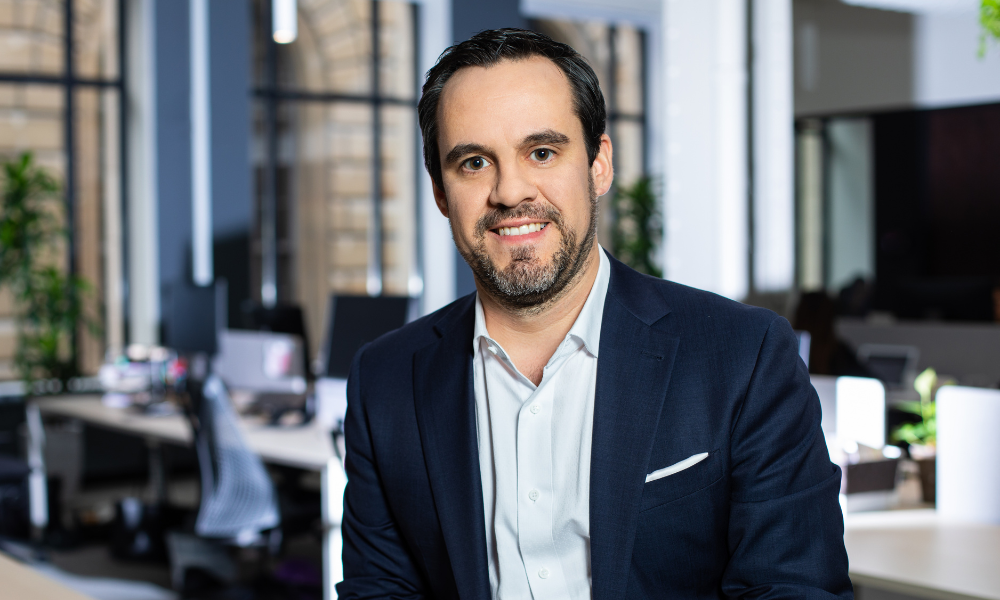The wellness company's health platform is improving leaves of absence by 50 percent

International Women’s Day and Women’s History Month might be in the recent past, but one health care company is investing in its capacity to address women’s health issues.
With 1 in 4 Canadian women in the workplace experiencing mental health challenges, their well-being to be better supported is crucial. That’s Dialogue Health Technologies’, a virtual healthcare and wellness platform, main focus. Women-specific health concerns are frequently overlooked in the workplace, and prioritizing support for these concerns is a business imperative in which employers play a crucial role, says Dialogue’s COO Jean-Nicolas Guillemette.
“The reason why the health of all women is really important for us is that we have identified a clear gap in the current healthcare system for women,” he says. “This is a significant issue that we want to address. There's tons of medical studies and clinical trials that have shown those studies are more focused on men than women, in a lot of cases. And we don't know as much around a woman's health concern as we know for men.”
Because they want to cover that gap, and to help employers and employees who may be struggling with their physical health or mental health, Dialogue has acquired certain assets of Koble Care Inc., a digital health and well-being platform supporting women's health.
Koble's expert content will be integrated into Dialogue's Integrated Health Platform (IHP), a one-stop-shop virtual platform. The acquisition of Koble assets, Guillemette noted, will also equip women to better prevent potential concerns and advocate for themselves when faced with important milestones such as pregnancy, postpartum, and return to work.
Improving leave of absences is where Dialogue is helping employers succeed as Guillemette is quick to point out that Dialogue is reducing the time of leave of absence by roughly 50 percent through their mental health offerings. “This is significant, in terms of productivity, in terms of costs,” he says. “Most employers will not replace someone that go on a leave of absence. Yet, the pressure for the rest of the team who still need to do the same job to cover the person who is not there, is important.”
“If you cannot reduce the number of leave of absences, that will have a significant impact on your entire wellness of your workforce,” he added.
Dialogue’s IHP is what Guillemette says “has been really unique in the market.” Employers who sign their employees up to use Dialogue’s services will benefit from accessing their IHP, which consists of “working with a multidisciplinary healthcare team that will support you, no matter what the issue is,” Guillemette explains.
“When you have an integrated healthcare platform, like Dialogue, you're able to treat everything that is related to mental health and physical health on the same application at the same place with the same team and the same patient profile,” he added. “This is really unique and is a great benefit for employees and employers also see a lot of return on investment because of that.”
Dialogue’s platform also rids employees of having to use search engines, like Google, to figure out what health care issues they might be facing. “Come on Dialogue, ask a question and we'll figure out who's the best provider and support you,” Guillemette says. “It can be a doctor or nurse practitioner, it can be a psychologist or psychotherapist, a social worker, or couple therapy that will support you through the journey and help you to feel better.”
Guillemette highlighted that they are consistently and continuously training their team to ensure they are able to support every woman that signs on the Dialogue platform. “There's still lots of effort to do, but we're seeing a spike in utilization, related to mental health,” Guillemette says. “This is a great news because that means people find the courage and are comfortable to ask for help. And the only thing that happens when you ask for help is that you will get better. It might take time, but you will get better. This is an amazing outcome of the services that we're offering and the investment that employers are making.”
While savings will vary from organization to organization, Guillemette says what's important is to build trust with a client, you need to be able to show results and Dialogue has those results. “Employers and plan sponsors who really believe they want to invest and want to have one integrated platform with all the services under one roof and one application, I think, this is where Dialogue is quite unique.”



